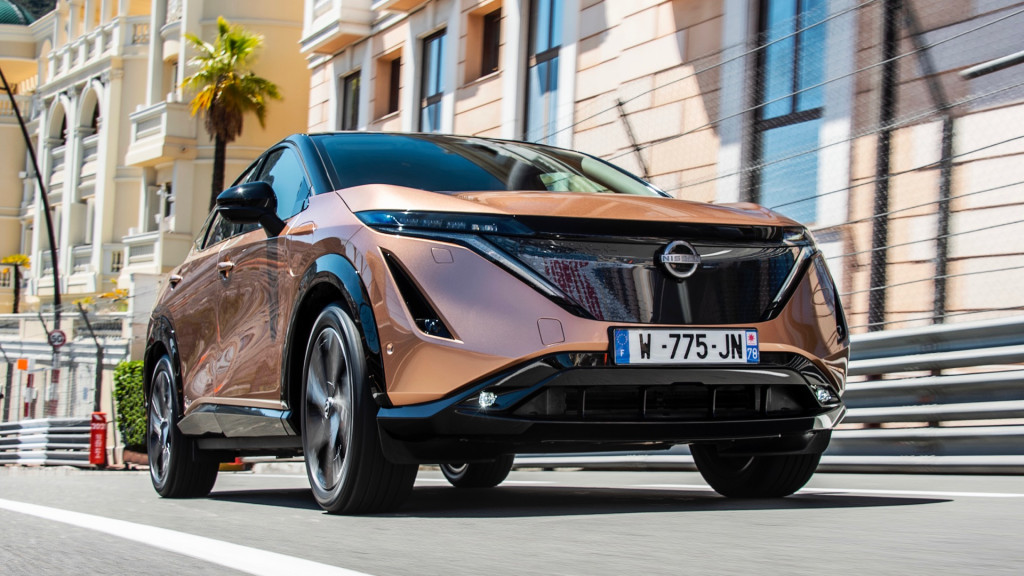Nissan on Thursday announced an "intention" to make battery-electric cars account for more than 40% of its United States sales by 2030, with additional sales from other electrified models, such as hybrids and plug-in hybrids.
That represents a more aggressive target than that unveiled by the Biden Administration that overshadowed it the same day. While President Biden signed an executive order to make 50% of new-vehicle sales zero-emission by 2030, that non-binding goal includes plug-in hybrids and hydrogen fuel-cell vehicles. Nissan, on the other hand, specified battery-electric cars.
Nissan's announcement makes it among the more ambitious commitments from full-line automakers. Unfortunately, it was released the same day as announcements from other automakers that essentially restated existing EV policy in support of Biden's executive order.
In addition to the 2030 sales goal, the automaker said that "every all-new Nissan vehicle offering in key markets will be electrified" by the early 2030s.

Nissan Ariya prototype in Monaco
Nissan helped kick off the era of modern electric cars in 2010 with the Leaf, which is now in its second generation. Its next EV for the U.S. will be the Ariya crossover, due in 2022.
Nissan has said that the Ariya will soon be joined by several other fully electric models, and this announcement confirms that it's likely those other models will be U.S.-bound.
A rumored small electric crossover slotting below Ariya—likely sized more like the Hyundai Kona Electric—could be a start. Nissan also hinted back in 2019 with the IMs concept that the Ariya might get an "elevated sports sedan" counterpoint, likely built on the same platform.
The news from Nissan comes just a day after the carmaker revealed a much lower base price for its Leaf—making it the lowest-priced EV in the U.S. market.












